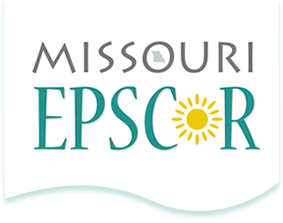Missouri Transect: Plants, Climate and Community
Project Summary
The Missouri Transect is a five-year effort to build infrastructure, knowledge, and collaborations in research and education across Missouri. The research and education activities are focused on understanding, modeling, and predicting 1) short- and long-term trends in temperature and water availability; 2) the impact of these trends on the productivity of native flora and agriculture crops; and 3) how different stakeholder communities are likely to respond to a changing climate. We have assembled interdisciplinary teams who will focus on specific areas of research and education and interact collaboratively to build the research platform across the state.
Mission
The Missouri Transect will enhance our state?s capacity to model and respond to the effects of climate change on plants and community on a local scale.
Vision
Missouri EPSCoR will enhance the state?s infrastructure for science and technology, stimulating Missouri?s economy and leading to job creation.
Members of the Climate, Plant, and Community Teams bring together their diverse research strengths and approaches to bear on three overlapping research questions: How do short- and long-term climate-scale trends affect crops and the natural flora? What genes are important to plant responses to these environmental variations? and How resilient are Missouri communities to variations in the climate and its impact on plants?
The teams assembled have a range of expertise, experience, and capabilities in research, education, diversity, outreach, and commercialization. Team members are drawn from participating institutions and are leaders in their respective fields.
Expected outcomes from this project include a strong climate monitoring infrastructure with the ability to predict daily, seasonal, annual and future variability; drought-tolerant crops; a regional resilience framework to help Missouri communities respond to climate change; modernization of Missouri?s cyberinfrastructure capable of handling ?Big Data?; and a more technologically advanced workforce.
